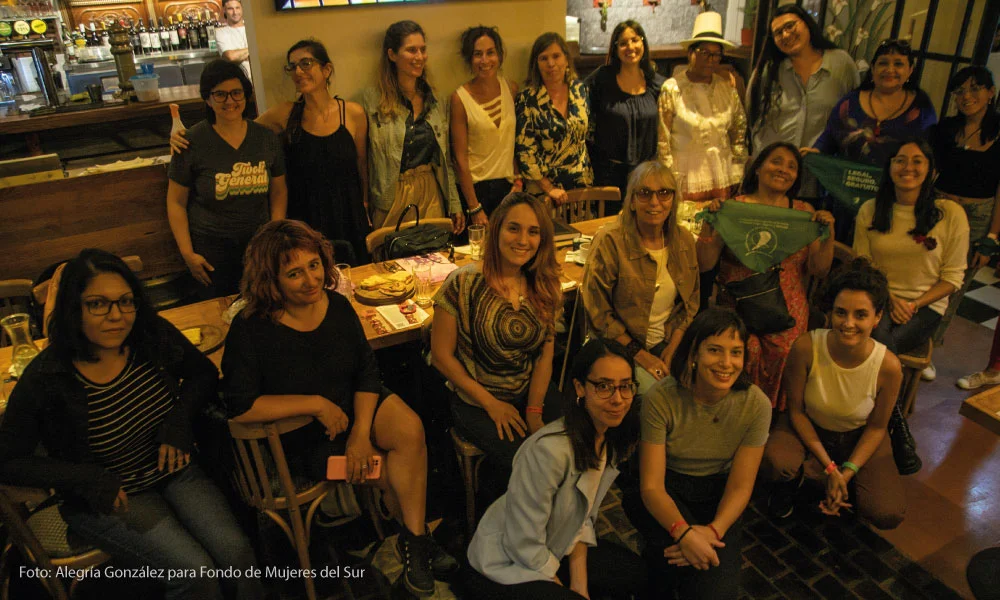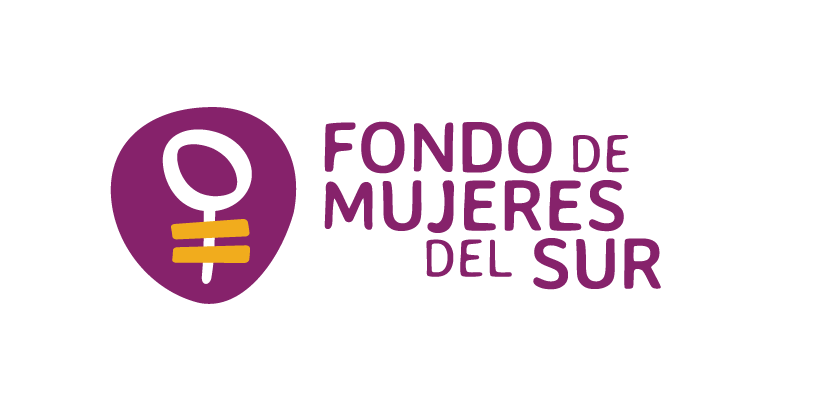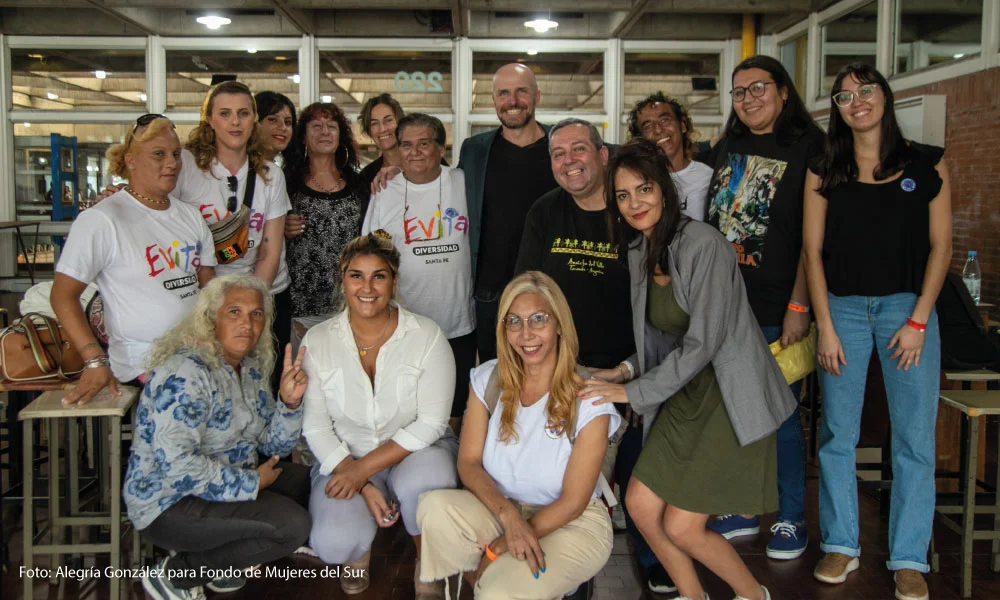Grantee organisations supported by Fondo de Mujeres del Sur, from different Latin American countries, participated in the Forum sessions. Some members of the FMS Executive Team accompanied them, and we took advantage of the opportunity to meet up and exchange stories, projects and strategies.
The World Forum on Human Rights is one of the most important gatherings for activists and leaders from around the world. It is a space for debate and reflection on the advances and challenges in the fight for social justice and the protection of human rights at a global level.
The third edition of this event was organised by the International Centre for the Promotion of Human Rights – UNESCO (CIPDH – UNESCO) and the National Human Rights Secretariat (Argentina) within the framework of Memory Week.
The III Forum was held from March 20 to 24 in Buenos Aires (Argentina) and there were more than 21,000 participants from organisations and movements from 98 countries in Latin America and the world.
Throughout the event, participants were able to attend a wide range of panels and presentations by leaders and activists. This made it possible to share experiences and struggles for the defence of human rights, as well as establish networks between organisations at a local, national and international level.
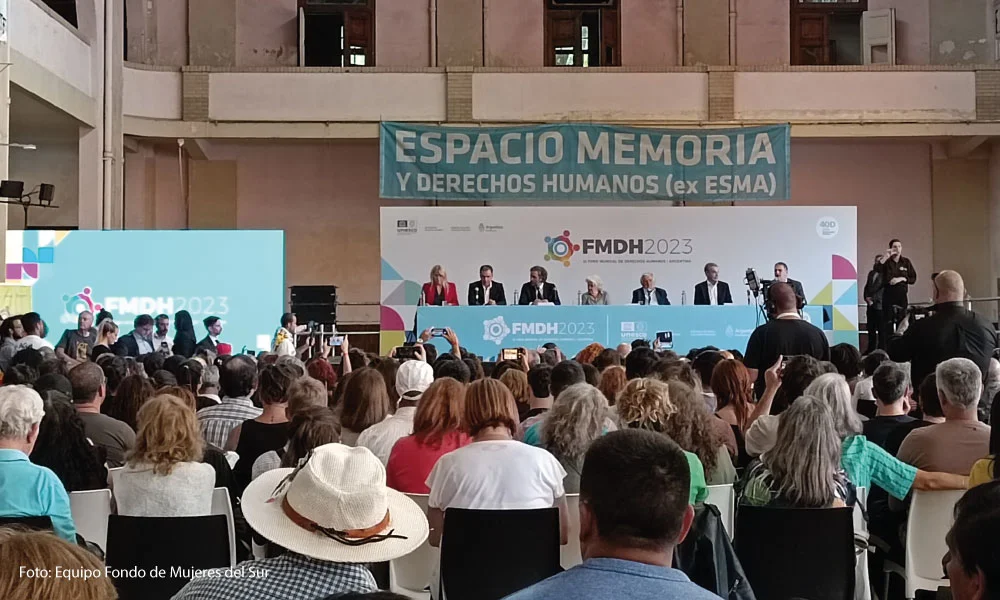
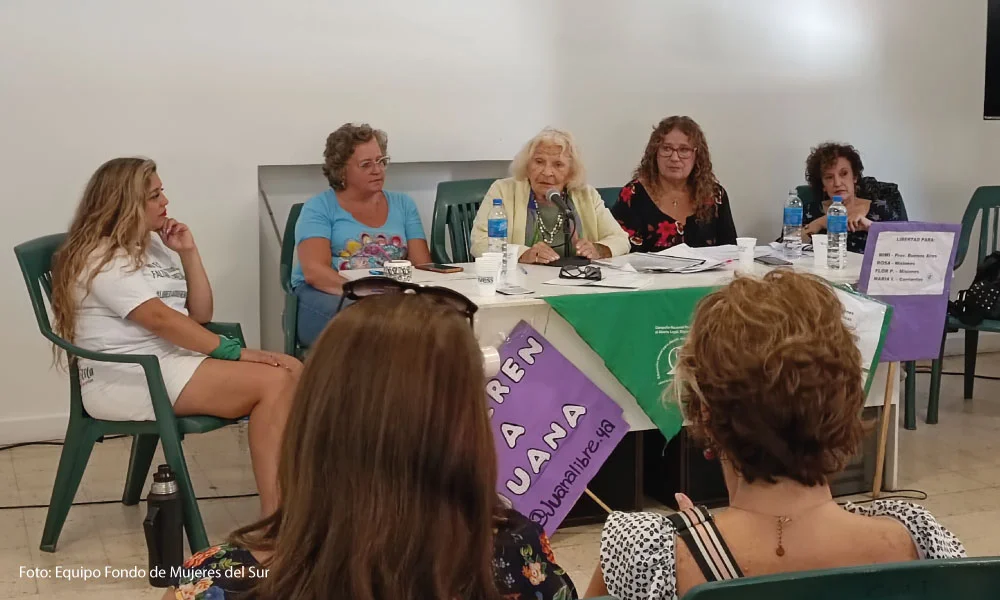
The dates were chosen specifically: March 24 was the 47th anniversary of the coup d’etat that began the last and bloodiest civil-military dictatorship in Argentina’s history, within the framework of Operation Condor in Latin America. From 1976 to 1983, methods of State terrorism in Argentina were intensified and systematised, including the forced disappearance of people, torture and theft and appropriation of children.
Special debates and self-organised activities took place in the Space for Memory and Human Rights, formerly known as ESMA (Higher School of Mechanics of the Navy), one of the four forum venues for thematic panel discussions, conferences and musical presentations.
This space is laden with political significance as it was used as one of the largest clandestine centres of detention, torture and extermination in the country. Given the need to exercise collective memory, reparation and active defence of human rights, since 2004 it has become the Space for Memory and for the Promotion and Defence of Human Rights.
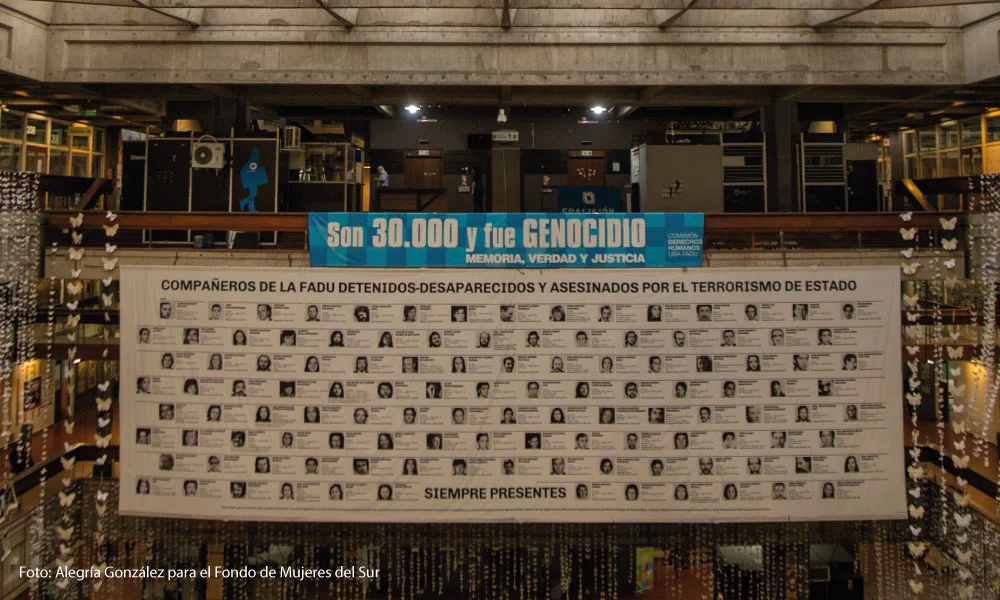
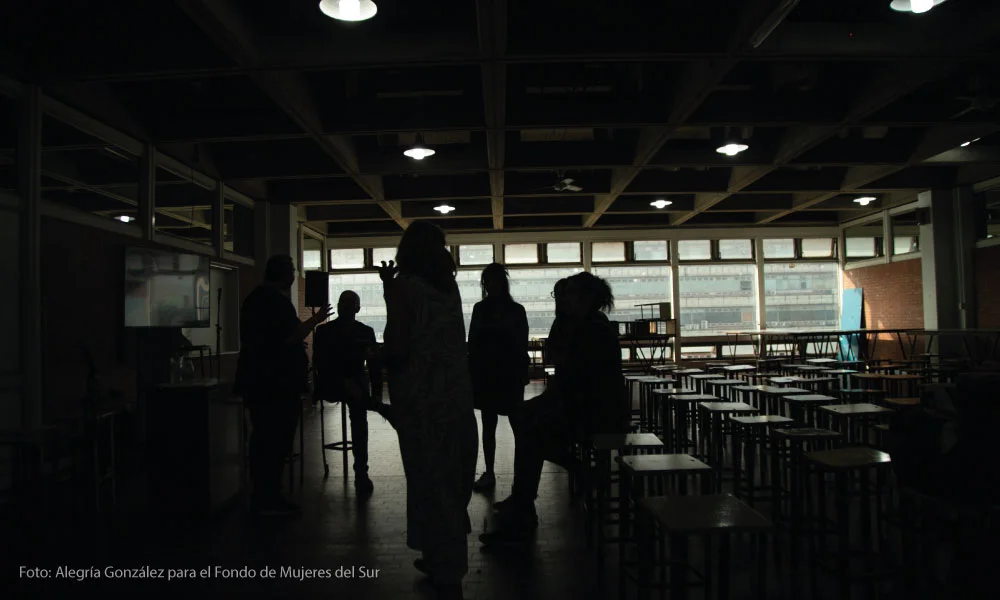
In this context, Fondo de Mujeres del Sur (FMS) attended the Forum to provide support for various grantee organisations during their presentations, including Asociación de Mujeres Peruanas Afectadas por las Esterilizaciones Forzadas (AMPAEF). During their panel presentation, AMPAEF shared their 25-year struggle to obtain justice and reparation for the forced sterilisations that occurred during the undemocratic government of Alberto Fujimori (1990 – 2000) in Peru. This racist practice and violation of human rights affected more than 300,000 indigenous, Quechua-speaking, peasant and low-income women. AMPAEF’s fight is for truth, justice and comprehensive reparation for victims.
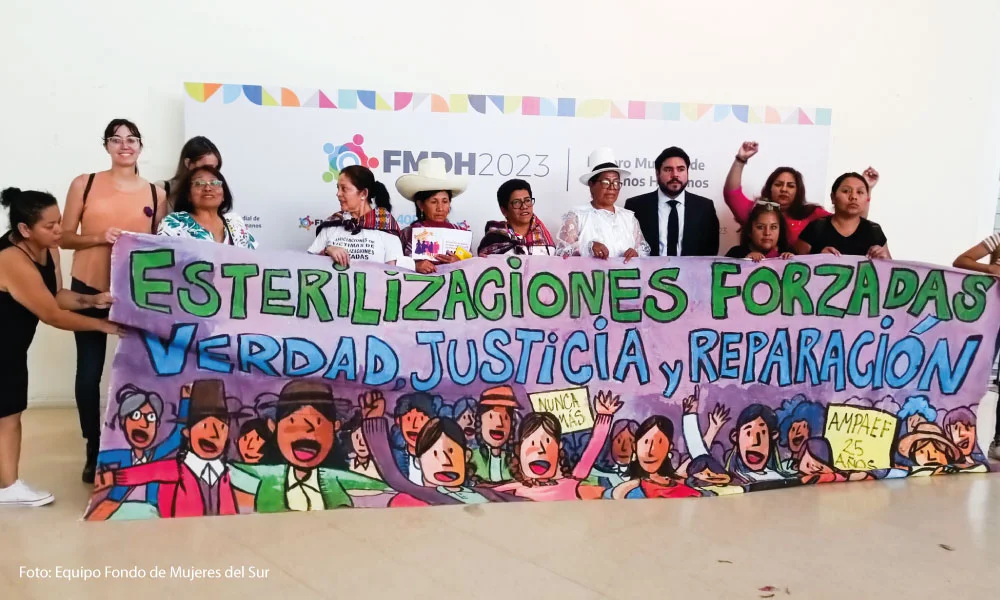
Likewise, FMS accompanied the group called LesWarmi, lesbian and bisexual indigenous women (Tucumán, Argentina), in their presentation-workshop on strategies to promote the rights of LGBTIQ+ elderly people.
During the workshop, interactive tools were presented to create safer and more inclusive spaces for LGBTIQ+ elderly people, as well as ways to intervene in the event of face-to-face discrimination. LesWarmi, lesbian and bisexual indigenous women has been working since 2008 to eradicate the stigmatisation of the elderly and sexual diversity through both face-to-face and online advocacy actions.
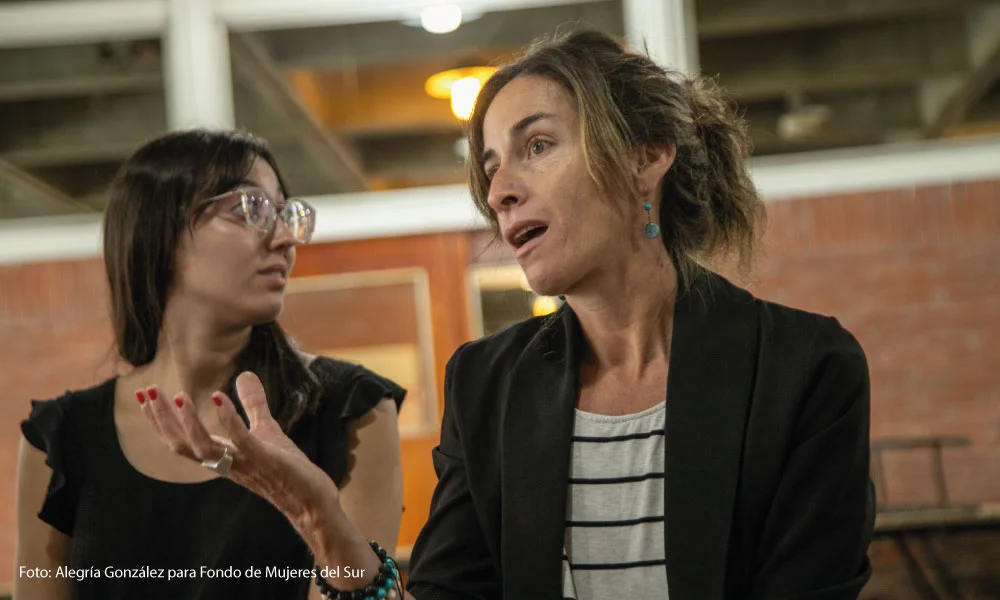
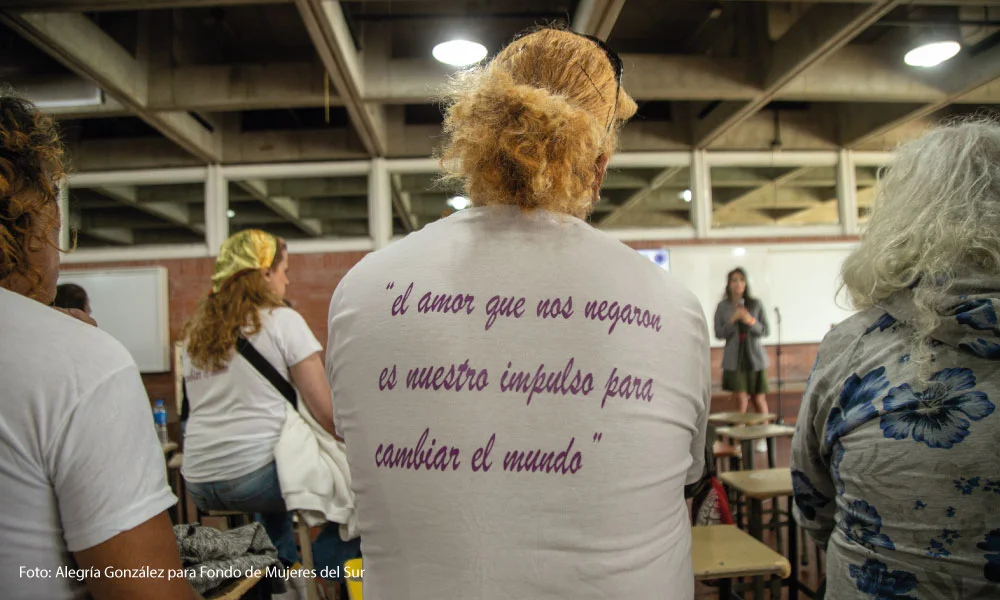
AMPAEF and LesWarmi, lesbian and bisexual indigenous women are two of the organisations supported by FMS as part of the Leading from the South (LFS) programme, a feminist initiative to strengthen women’s activism in the Global South. Both organisations received a special grant to participate in the III Forum.
The Forum was also an opportunity for LFS grantee organisations to have face-to-face meetings to network and share about their struggles. We were able to meet with more than 15 members from ten organisations to exchange experiences and talk about strategies to generate possible advocacy actions together in the future.
